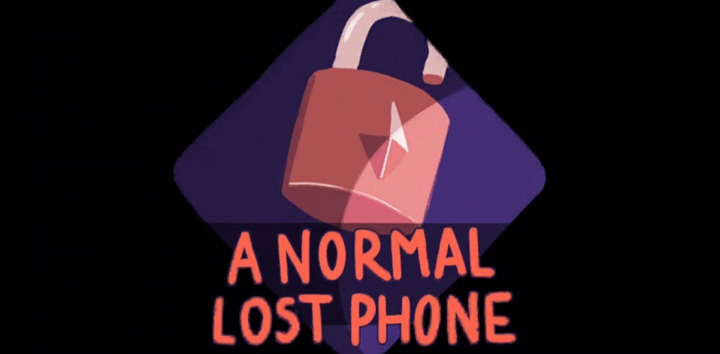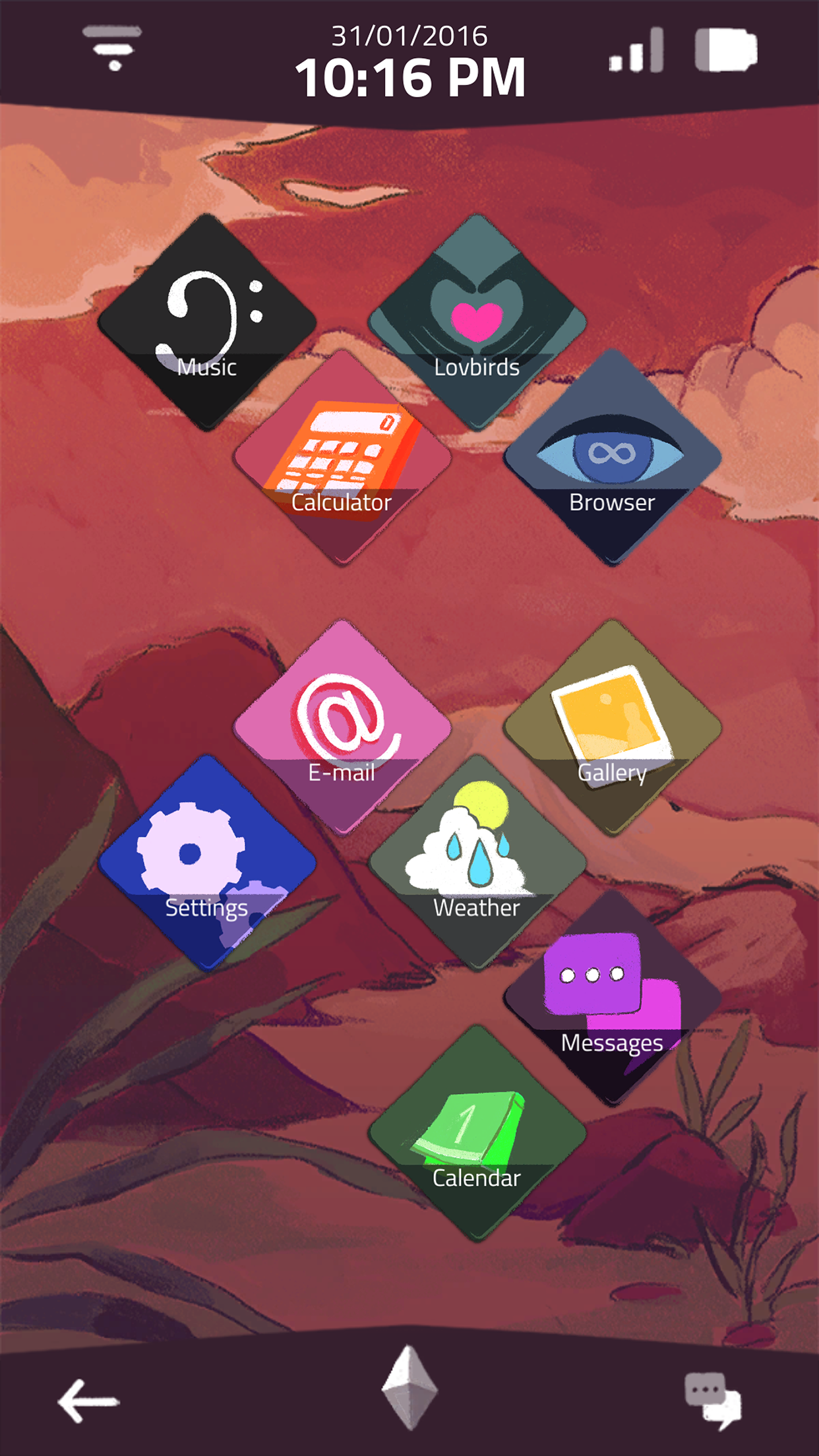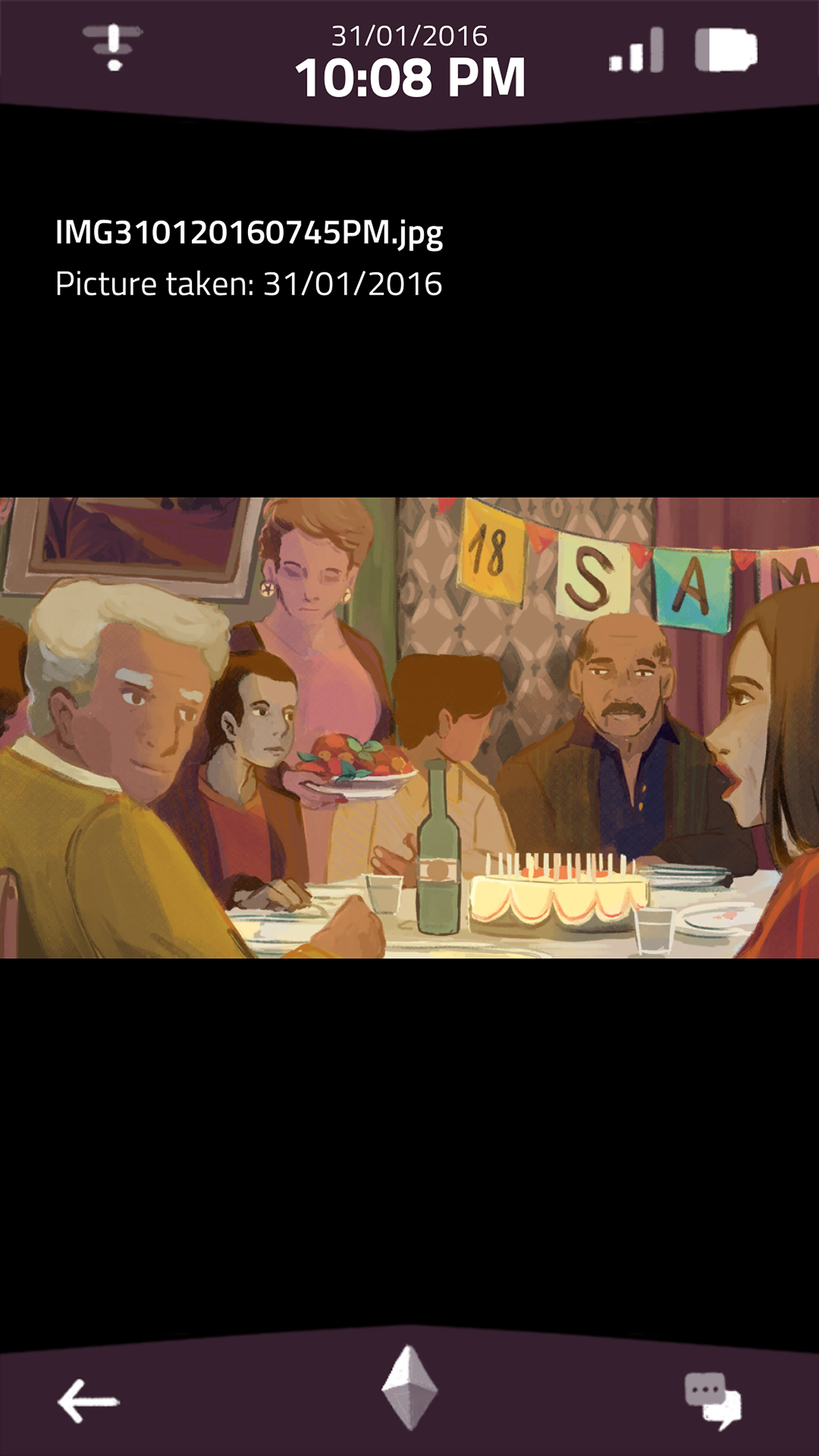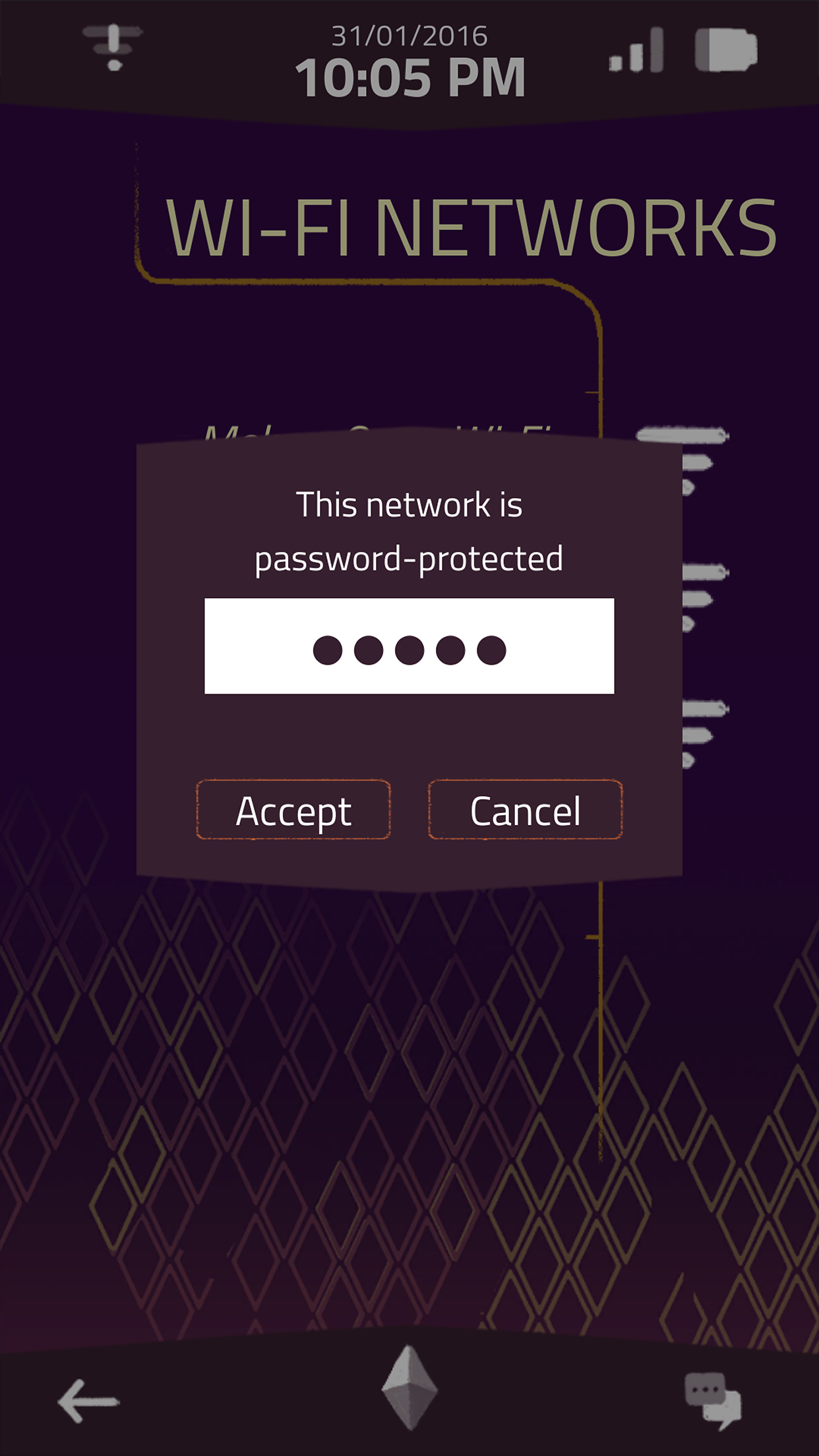A NORMAL LOST PHONE Review

I can think of no object more personal to who I am or how I live my life than my phone. I’d argue that most people would agree. We spend hours everyday interacting with our pieces of plastic, glass, and metal. Sometimes in complex ways, navigating further deeper networks, multi-step applications to accomplish a task, but other times, far more frequently, in simple rituals. We turn on the screen, check the time, maybe scroll around or skip a song, but then we pop back out into the real world and slip our magic mirror back into our pocket.
The cellphone/smartphone is personal. It can be customized, it can learn and remember specific information about who we are or what we’ve done, but setting all of that aside, it is personal because it is the one object we own that we carry with ourselves constantly. Most people between the ages of 18-25 are never without their phones. It is a fact of life, both as the corporate interests designing and selling phones seek to further increase attachment and the rest of culture adapts around the widespread adoption of them, phones are everywhere and they’ve have never been more a part of us than they are today.

Gotta appreciate that homemade UI
A NORMAL LOST PHONE leverages these facts to tell a story both pertinent to its setting and to the level of intimacy we share with our phones. To play A NORMAL LOST PHONE is to invade someone’s privacy by physically having their phone in your hands and using it. Their most personal object that they have poured all of themselves into is unlocked and their separation from it is documented in graphic detail. The only power you have as a player is to use it and then, of your own volition, stop.
What Accidental Queens (the French developer behind this experience) have created is a narrow slice of narrative with surprising depth. Depth that is not always visible as delivered by the game’s occasionally awkward dialogue (mainly due to what may have been a difficult localization process from their native French), but becomes increasingly present as the game takes its turn and in the third act finally shows its hand. A NORMAL LOST PHONE is a tale of discovery, not just for the player, who learns how to use a stranger’s phone and begins digging through their personal life, but for the protagonist of the story, Sam, as they slowly untangle who they actually are and what they are going to do about it. This is a process that is at times uncomfortable to read (through the game’s many in-game texts, emails, and online message boards) and even more so to experience, as Sam is confronted with a variety of trials on their path to a fully realized identity.

You’ll use inscrutable photos of a kid’s family to solve “puzzles.”
What’s more impressive is that A NORMAL LOST PHONE is able to convey this story that is on paper both troubling and complex in a way that most games would be too afraid to even pursue. The reveals and twists of the story are more or less available to the player from the start of the game. With the right guesses and some snooping, a player could learn the multiple twists of the game and its final reveal from the very first screen. That could dissolve all tension, remove all mystery, negate the purpose and existence of the game itself. But it’s possible because of the relative realism Accidental Queens achieve with their hand-drawn UI. The pretend phone of the game (an even more real phone if played on mobile) has its own interior logic (ironically not dissimilar from the waves of shitty skinned Android phones that populate real life) that make it feel like an actual designed object, not just something meant to inject an audience with story. Further touches like a working music player (with music in it) and calculator app up the immersion and deepen the feeling of a separate world that we simply haven’t been privy to until finding Sam’s phone.

Never has guessing a Wi-Fi password been more rewarding
To say more would begin to do the game itself a disservice. There are layers to A NORMAL LOST PHONE that as they are peeled back recontextualize the jilted awkwardness of the early story into something more real. The game may never fully do its serious subject matter the service it deserves (and it teeters on a dangerous edge that could go someplace far worse). But it tries and tries in a way I’ve never quite experienced before on a mobile platform like this. It’s something, even if it can’t quite capture everything that it needs to.
It’s ultimately about the difficulty of growing up in spaces without context and realizing you are more than you’ve been told. That’s the heart of A NORMAL LOST PHONE. Arguably the only secret that should be revealed from the game’s mystery plot. Everything else is better left as an actual experience. You have to know these things, meet Sam, to know how the game ends and to know how your journey with it should end. That’s a powerful idea and any bumps along the way are able to be forgotten in pursuit of the freedom to move on and be something new.
Sometimes things were meant to be lost.
Verdict: Recommend
Reviewed on mobile, also available on PC



